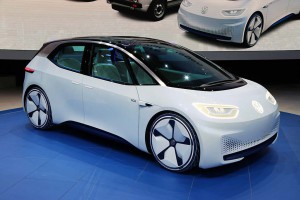
As VW moves to its goal of building 1 million goals annually, it hopes to cut 25,000 jobs in Europe.
Volkswagen AG is looking to eliminate some 25,000 jobs in Europe during the next 10 years as moves to reorganize and rebuild in the wake of the costly scandal created by the company’s decision to cheat on the emission tests.
So far, Volkswagen has already paid out close to $20 billion in fines and compensation to consumers and dealers. It also still faces potentially expensive lawsuits by shareholders about the lost value of the company’s stock as well as bond holders, who have claimed they were misled on the state of the VW’s financial health by the automaker’s top management.
VW’s post-scandal strategy involves a sweeping reorganization of its production base in Europe and a focus on electric vehicles. The plan calls for producing 1 million electric vehicles a year – one quarter of its annual production – by 2025, VW executives have said.
The changes will not have any impact on the employee levels at the company’s plant in Chattanooga, Tennessee, which is expanding. Executives have announced plans to bring the company’s new SUV to the plant.
(Check out our first drive in the 2017 VW Alltrack. Click Here for the story.)
Bernd Osterloh, chairman of the general and group works councils that serve as the voice of the company’s employees, and as a member of the supervisory board, confirmed in an interview with Handelsblatt, one of Germany’s leading business publications.
One of the biggest changes on the table at VW are the plans to eliminate between 1,500 and 2,500 jobs per year during the next 10 years, mostly through attrition, which will involve letting jobs disappear as older workers retire, Osterloh said.
The company hopes to put the Dieselgate scandal behind it with a new electric-car and digitalization strategy, according Osterloh, who is involved in the reorganization talks.
The works council is now negotiating with VW management about the plan for the future, Osterloh said.
(“Resounding” majority of VW owners taking settlement offer. Click Here for the story.)
“Among other things, it’s about the transition to electrical cars. Volkswagen aims to become an industry leader in this area. We support the move because it secures jobs for the long term. It’s also about improving results for the VW brand, needed for future,” he said during the interview.
One of the major sticking points, however, involves cuts at the company’s huge headquarters in Wolfsburg, Germany.
VW’s management wants to trim white-collar staff, which account for about two thirds of the 60,000 VW employees in Wolfsburg. They work in administration, engineering, design, research and development, and sales and marketing.
(VW facing $9 billion in investor claims over diesel scandal. For more, Click Here.)
The works council also is resisting attempts to outsource services such as plant security, IT support and catering at a division in Wolfsburg. Workers also oppose moves to scrap a longstanding practice of allowing factor foremen to switch to higher-paid non-production jobs held by workers with long-seniority.
